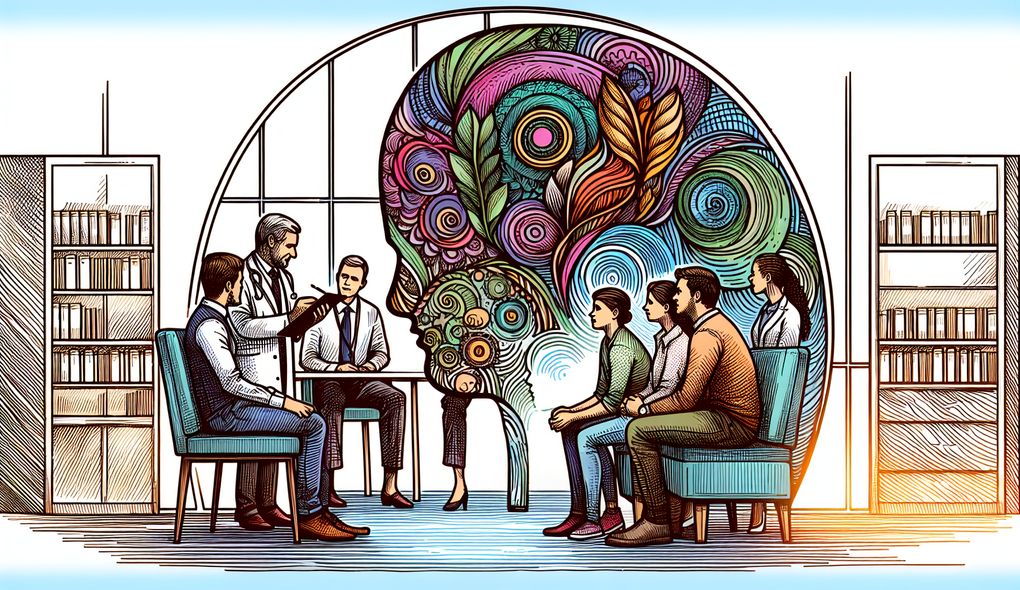What steps do you take to ensure patient confidentiality?
INTERMEDIATE LEVEL

Sample answer to the question:
To ensure patient confidentiality, I follow strict protocols and guidelines. Firstly, I always obtain informed consent from the patient before discussing their medical information with anyone else. I also keep all patient records and information securely stored in a password-protected electronic system. When communicating with other healthcare professionals, I use encrypted channels to ensure the confidentiality of patient information. I also strictly adhere to HIPAA regulations and regularly attend training sessions to stay up to date with the latest standards and best practices in patient privacy. Overall, my priority is to create a safe and confidential environment for patients to discuss their medical and mental health concerns.
Here is a more solid answer:
Ensuring patient confidentiality is of utmost importance to me. I take several steps to safeguard patient information. Firstly, I always obtain informed consent before discussing any medical details with others. Secondly, I strictly adhere to HIPAA regulations by keeping all patient records and information securely stored in a password-protected electronic system. Additionally, I utilize data encryption and secure channels when communicating with other healthcare professionals to ensure the confidentiality of patient information. I am also committed to ongoing education and regularly attend training sessions to stay up to date with the latest privacy standards and best practices. By following these protocols and continuously improving my knowledge, I create a safe and confidential environment for patients to discuss their medical and mental health concerns.
Why is this a more solid answer?
The solid answer provides more specific details on the candidate's use of data encryption and secure channels for communication, as well as their commitment to ongoing education and staying up to date with privacy standards. However, it can still be improved by including examples of how the candidate has implemented these measures in their previous work experiences.
An example of a exceptional answer:
As a psychiatrist, I understand the critical importance of patient confidentiality. To ensure the highest level of privacy, I follow a comprehensive approach. Firstly, I obtain informed consent from each patient before discussing any sensitive medical information. This ensures that patients are fully aware of the potential risks and benefits of sharing their data. Secondly, I strictly adhere to HIPAA regulations, maintaining rigorous security measures for all patient records and information. This includes using robust data encryption and secure storage systems to protect against unauthorized access. Additionally, I utilize secure communication channels, such as encrypted email and video conferencing platforms, when discussing patient information with other healthcare professionals. To stay current with privacy standards, I actively engage in continuous education programs and attend industry conferences on patient confidentiality best practices. By implementing these measures, I create a safe and confidential environment, fostering trust and enabling patients to share their concerns openly.
Why is this an exceptional answer?
The exceptional answer provides a comprehensive and detailed explanation of the candidate's approach to patient confidentiality. It includes specific measures taken to obtain informed consent, adhere to HIPAA regulations, use data encryption and secure storage, and communicate securely with other healthcare professionals. The answer also emphasizes the candidate's commitment to continuous education and knowledge of privacy best practices. No further improvements are necessary for this answer.
How to prepare for this question:
- Familiarize yourself with HIPAA regulations and the latest privacy standards in healthcare.
- Research different data encryption and secure storage methods for patient information.
- Think of past experiences where you have ensured patient confidentiality and be prepared to discuss them during the interview.
- Attend training sessions or webinars on patient privacy to enhance your knowledge and demonstrate your commitment to ongoing education.
- Consider the ethical considerations of patient confidentiality and reflect on your personal approach to maintaining privacy.
What are interviewers evaluating with this question?
- Knowledge of patient confidentiality regulations
- Adherence to HIPAA regulations
- Appropriate use of data encryption and secure storage for patient information
- Obtaining informed consent from patients
- Continuing education and staying up to date with privacy standards

